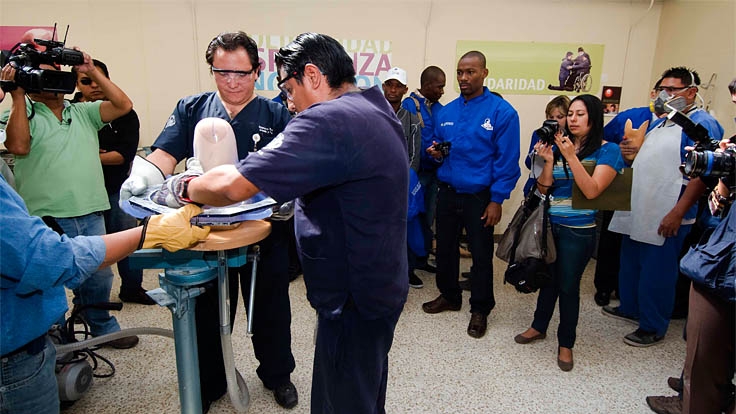When five countries decide to exchange experiences and knowledge to improve the lives of the disabled, words such as disabilities, handicapées or discapacidades acquire the same meaning and idiomatic differences pose no obstacles.
Nineteen delegates for El Salvador, Haiti, Jamaica and Peru recently met in Quito to discuss the issue and learn about Ecuador’s Manuela Espejo program.
The World Report on Disability estimates that more than one billion people in the world live with some type of disability.
For three days, delegates shared several experiences, for example with the geo-referencing system, which enables disabled persons registered in the system to be located.
Alex Camacho, secretary general of Ecuador’s Vice-president’s Office, underscored the importance of the ongoing exchange of experiences of the Manuela Espejo program in over eight countries and how the World Bank has become a strategic partner to achieve that objective.
The delegations had the opportunity to talk with project managers, as well as to visit beneficiaries and learn first-hand about providing services to the low-income, disabled population.
“The Ecuadorean experience has become a regional and international reference for the design and implementation of public policies for the inclusion of the disabled,” said María Dolores Arribas Baños, resident representative of the World Bank in Ecuador.

